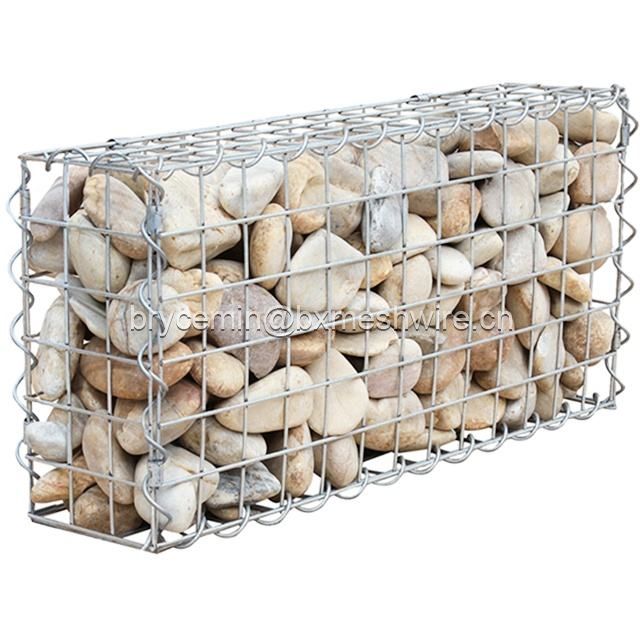Gabion boxes, often referred to as gabion baskets or cages, are a versatile and innovative solution used in civil engineering, construction, and environmental projects. These wire mesh containers, typically filled with rocks or other suitable materials, serve a variety of essential purposes. In this article, we will explore the primary functions and benefits of gabion boxes and their contribution to stability and sustainability in various applications.
Erosion Control:
One of the primary purposes of gabion boxes is to prevent erosion in areas with high water flow or soil instability. The wire mesh design allows water to flow through the structure, while the rocks inside the gabion box act as a barrier to slow down the water velocity. This prevents soil erosion, protects riverbanks, and stabilizes shorelines. Gabion boxes are particularly effective in areas prone to heavy rain, floods, or coastal erosion, where they help preserve the integrity of the landscape and protect surrounding infrastructure.
Retaining Walls:
Gabion boxes are commonly used to build retaining walls, especially in sloped terrains or areas with uneven topography. The interlocking wire mesh containers create a stable wall that can resist the lateral pressure of soil or water. The flexibility of gabion walls allows them to adjust to ground movement without cracking or compromising structural integrity. These walls are an eco-friendly alternative to conventional concrete retaining walls, as they promote natural drainage and vegetation growth.

Flood and Stormwater Management:
In flood-prone regions, welded gabion boxes play a crucial role in managing stormwater and reducing flood risks. When placed strategically, they act as flood barriers, redirecting and containing excess water to prevent damage to infrastructure and surrounding properties. The ability to use locally sourced rocks as filling material makes gabions a cost-effective and sustainable flood protection measure.
Bridge and Culvert Abutments:
Gabion boxes are widely used in bridge and culvert construction as abutments to support the structure and provide stability to the foundation. They distribute the load from the bridge or culvert evenly and resist lateral forces, ensuring long-term structural integrity. Additionally, the permeability of gabion abutments allows water to flow freely, reducing the risk of hydraulic pressure buildup.
Noise Barriers:
Gabion boxes can serve as effective noise barriers alongside highways, railways, and other noisy infrastructure. The dense arrangement of rocks inside the mesh cages helps absorb and block sound waves, reducing noise pollution and improving the quality of life for nearby residents.
Landscaping and Aesthetics:
Beyond their functional applications, gabion boxes offer aesthetic benefits in landscaping and architectural design. The natural appearance of the rocks and the flexibility of the wire mesh allow for creative and visually appealing landscape features, such as garden walls, benches, and artistic installations.
Environmental Benefits:
Gabion boxes contribute to environmental sustainability in various ways. Using locally sourced rocks reduces the need for long-distance transportation, minimizing carbon emissions. The permeability of gabions promotes natural drainage, reducing the risk of stagnant water and potential breeding grounds for mosquitoes. Moreover, they provide habitats for small wildlife and encourage vegetation growth when filled with suitable soil.
Conclusion:
Gabion boxes are a versatile engineering solution with a wide range of purposes, from erosion control and flood management to retaining walls and noise barriers. Their ability to blend functionality with sustainability makes them an attractive option for engineers, architects, and environmentalists alike. By promoting stability, preserving landscapes, and minimizing environmental impact, Boxing gabion boxes have become an essential tool in modern construction and infrastructure development, helping to create a more resilient and eco-friendly future.



Comments
Please Join Us to post.
0